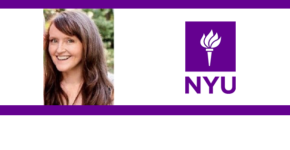 On New York University Week: Does anyone like going to the dentist?
On New York University Week: Does anyone like going to the dentist?
Kelly Daly, assistant research scientist at the Family Translational Research Group at the College of Dentistry, delves into how to get over your fear of going to get your teeth cleaned.
Kelly Daly, PhD, is an assistant research scientist at the Family Translational Research Group at NYU College of Dentistry and the project director for Dental FearLess. Dr. Daly is a child clinical psychologist with a research and clinical specialization in the neural and socioemotional impacts of trauma exposure across the lifespan, and risk and resilience factors implicated in the intergenerational transmission of family violence.
Overcoming Dental Fear
Having fear or anxiety about going to the dentist is extremely common. Dental fear can mean anything from worrying and ruminating prior to an appointment, being miserable and muscling one’s way through it, to terror and avoidance of the dentist altogether.
When people avoid the dentist, they only go for emergency care. These emergency appointments tend to be more intense and painful than routine treatment and fearful people take this as confirmation that they were right all along. This perpetuates their avoidance, and the cycle continues. Over time, we know that dental fear is associated with worse oral health and lower quality of life.
There’s an incredibly successful treatment for dental fear based on the principals of cognitive behavioral therapy, or CBT. More than two dozen studies show that it is effective, but only a handful of specialty clinics offer it and very few people receive it. Mental health providers are not trained in the treatment and patients and dentists often don’t even know that it exists.
Over the past decade, we’ve learned that apps can be used in CBT to successfully teach skills to challenge distorted thinking, confront fears, and regulate emotions. To disseminate these techniques to people who suffer from dental fear, our research team created an app called Dental FearLess, which delivers a foundational version of CBT for dental fear. For those who remain fearful after using the app, we provide a one-on-one virtual video session with a mental health provider that is tailored to this person’s individual fears.
In our pilot study, half of participants were no longer fearful after completing the program. The best part for us has been hearing from people after they go to their next dental appointment empowered, and successfully manage their fear.
We’re continuing to study Dental FearLess in a large, nationwide trial to help more people approach their dental visits differently and overcome their fear.
